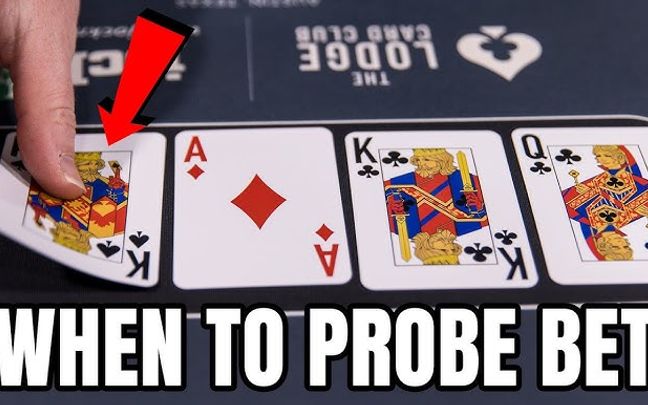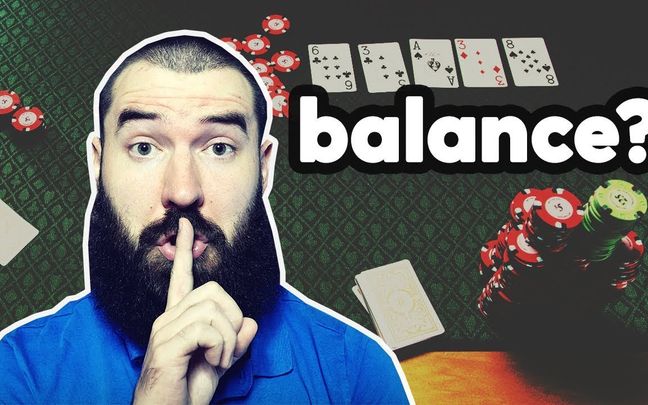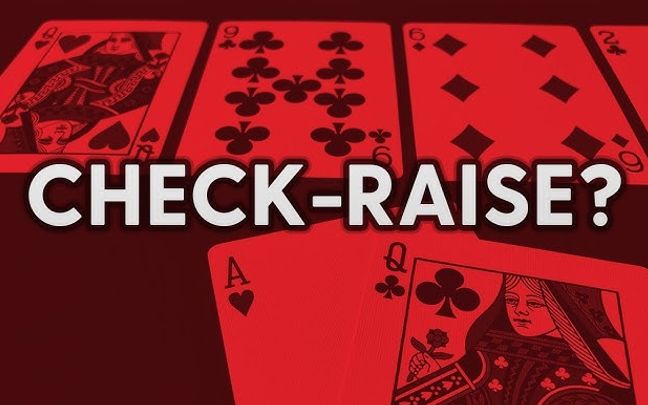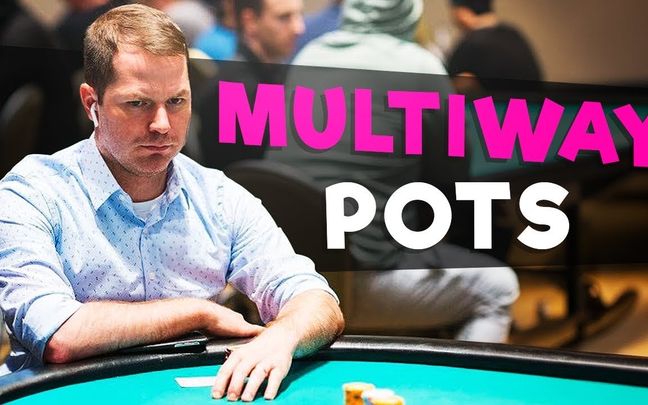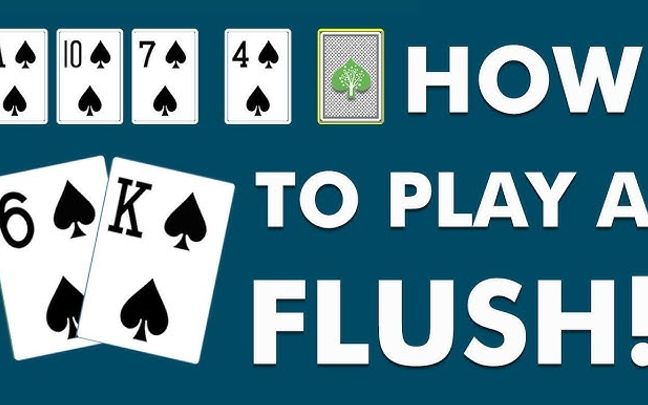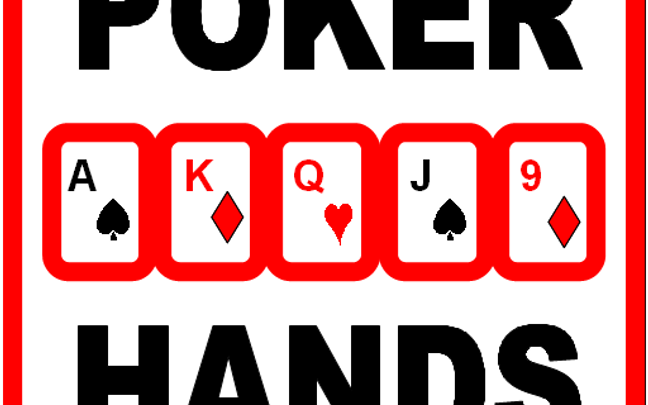The block bet in poker is an important strategy that players often use to control the size of the pot and minimize risks in uncertain situations. This tactic allows you to make a small bet to prevent opponents from making larger bets while creating opportunities to extract value from weaker or medium-strength hands.
This article will help you gain a deeper understanding of the concept, benefits, and associated risks of block betting in poker.

Block betting in poker is a strategy aimed at controlling the size of the pot.
What is a block bet in poker?
A block bet in poker is a special strategy often used in the river round (the final round of betting) to control the size of the pot and the value of bets from opponents. When a player executes a block bet, they make a smaller-than-usual bet to prevent their opponent from placing a larger bet, while also maintaining control over the hand.
The primary goal of a block bet in poker is to limit losses in situations where you are uncertain about the strength of your hand and do not want your opponent to bet too heavily. This strategy allows you to conclude the hand with a smaller loss if your opponent has a strong hand or to extract additional value from a medium-strength hand. A typical block bet in poker usually represents about 20-40% of the pot's value.
For example, if the current pot is 1,000 chips, a block bet might be 200-300 chips. If your opponent has a strong hand, they may only call or make a small raise, but they typically won’t bet too large because they feel there is little advantage in pushing you out of the hand.

Block bets in poker are often used in the river round to minimize risk.
When to Use Block Bets in Poker
Block bets in poker are typically employed in the following situations:
When you have a medium or weak hand but still have a chance of winning
If you hold a hand that isn’t particularly strong but isn’t too weak either (for example, a top pair or middle pair), using a block bet can help you prevent your opponent from making a large bet. This avoids putting you in a tough spot if your opponent decides to bet heavily, which could create additional pressure.
When you want to control the size of the pot
In many instances, you may not want your opponent to inflate the pot too much because you are concerned that your hand isn’t strong enough. A block bet allows you to set a safer bet yourself, preventing your opponent from escalating the pot size excessively.
When you are out of position
When you lack a positional advantage, having your opponent act after you can be a disadvantage. Utilizing a block bet in poker allows you to take control and stop your opponent from making large bets, especially since they can leverage their position to apply pressure.

A block bet in poker allows you to make a small bet to prevent your opponent from placing a larger bet.
Benefits of Block Betting in Poker
Here are the main benefits of block betting in poker that you should be aware of.
Minimize Losses Against Strong Opponents
When you suspect that your opponent has a stronger hand, using a block bet in poker helps you effectively control the situation. Your opponent may only call your bet instead of raising it significantly. This is especially useful when you have a hand that has a chance of winning but are uncertain about its strength, such as a top pair with a weak kicker.
A block bet in poker allows you to remain in the hand without facing a large bet from your opponent, thereby minimizing losses when comparing hands against stronger ones.
Optimize Value from Weak or Medium Hands
When you hold a hand that is not particularly strong but still has potential (such as a middle pair or a weak top pair), a block bet in poker is a way to create a small bet to control your opponent. If your opponent has a weaker hand, they may call your bet, thinking that you are not confident in your hand. This allows you to extract additional value from medium hands without facing the risk of a large bet, and it may even cause your opponent to fold if they have a weaker hand.
Control the Size of the Pot
One of the biggest advantages of block betting in poker is the ability to keep the pot at a size you can control. When you're uncertain or when your opponent has the potential to bet large, a block bet in poker allows you to place a smaller bet and avoid making tough decisions if your opponent bets aggressively. This helps maintain a manageable bet size and prevents the pot from escalating too high when you do not want to take on more risk than necessary.
Block betting in poker helps you maintain control at the poker table, protect your stack, and reduce risks when facing opponents with stronger hands. Additionally, it optimizes value for medium hands and helps avoid stressful decisions caused by large bets from opponents.

Block betting in poker helps protect your bankroll when you are uncertain about the strength of your hand.
Risks of Using Block Bet in Poker
Although block betting in poker offers numerous benefits, it also carries certain risks that need to be considered. One of the biggest dangers is the possibility that your opponents may recognize that you are employing this strategy because you are in a weaker position. When opponents sense hesitation or a lack of confidence in your bet, they may exploit this weakness by raising, thus applying pressure. This forces you to make difficult decisions; if you’re not careful, you might have to fold while still having a chance to win.
This is especially perilous when facing skilled players who can read situations and betting behaviors adeptly. They will notice that you are using block betting in poker to control the situation, and as a result, they can easily adjust their strategy to exploit you. A savvy opponent might start raising more frequently once they see you regularly employing block bets, putting you in a disadvantageous position.
Additionally, if you use block betting in poker too often or at the wrong times, you may quickly become an easy target for exploitation. When opponents recognize that you consistently make small bets to control the pot, they will adjust their strategies to make stronger raises when they have good hands, forcing you to fold or incur larger losses. This not only diminishes the effectiveness of block betting in poker but can also erode your advantage at the table.
Moreover, applying block betting without careful consideration can lead to missed opportunities for maximizing value from strong hands. If you only make small bets in situations where you should be betting large, you could lose the chance to win more chips from opponents with weaker hands.

Block betting in poker optimizes value from weak or medium hands.
In conclusion, while block betting in poker is a useful strategy for managing the pot and minimizing losses, you still need to be cautious when using it. Determining when and how to execute a block bet can be the key to your success or failure. To optimize this strategy, closely monitoring your opponents and reading the situation is crucial to help you avoid unnecessary risks and make the most of the opportunities at the table.


